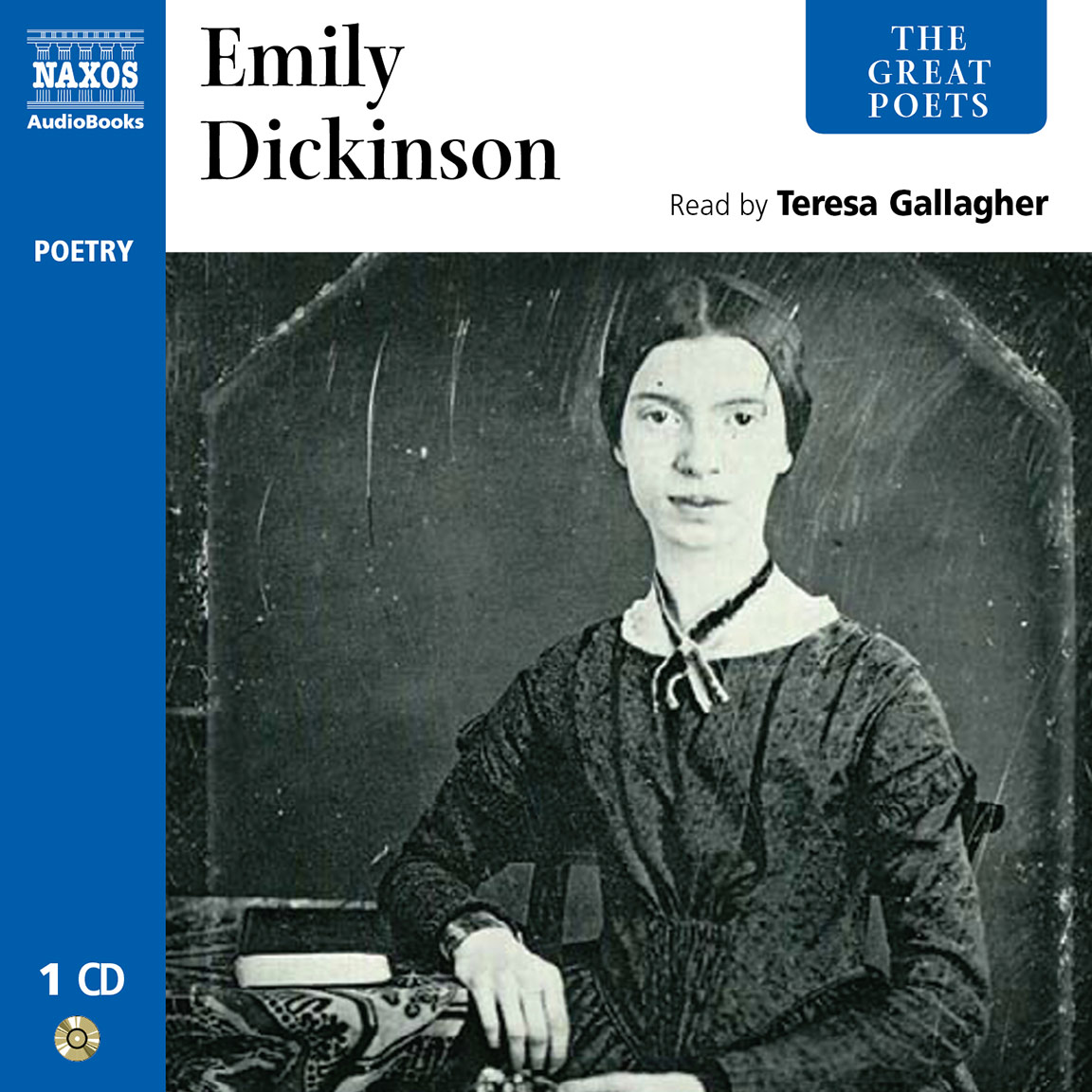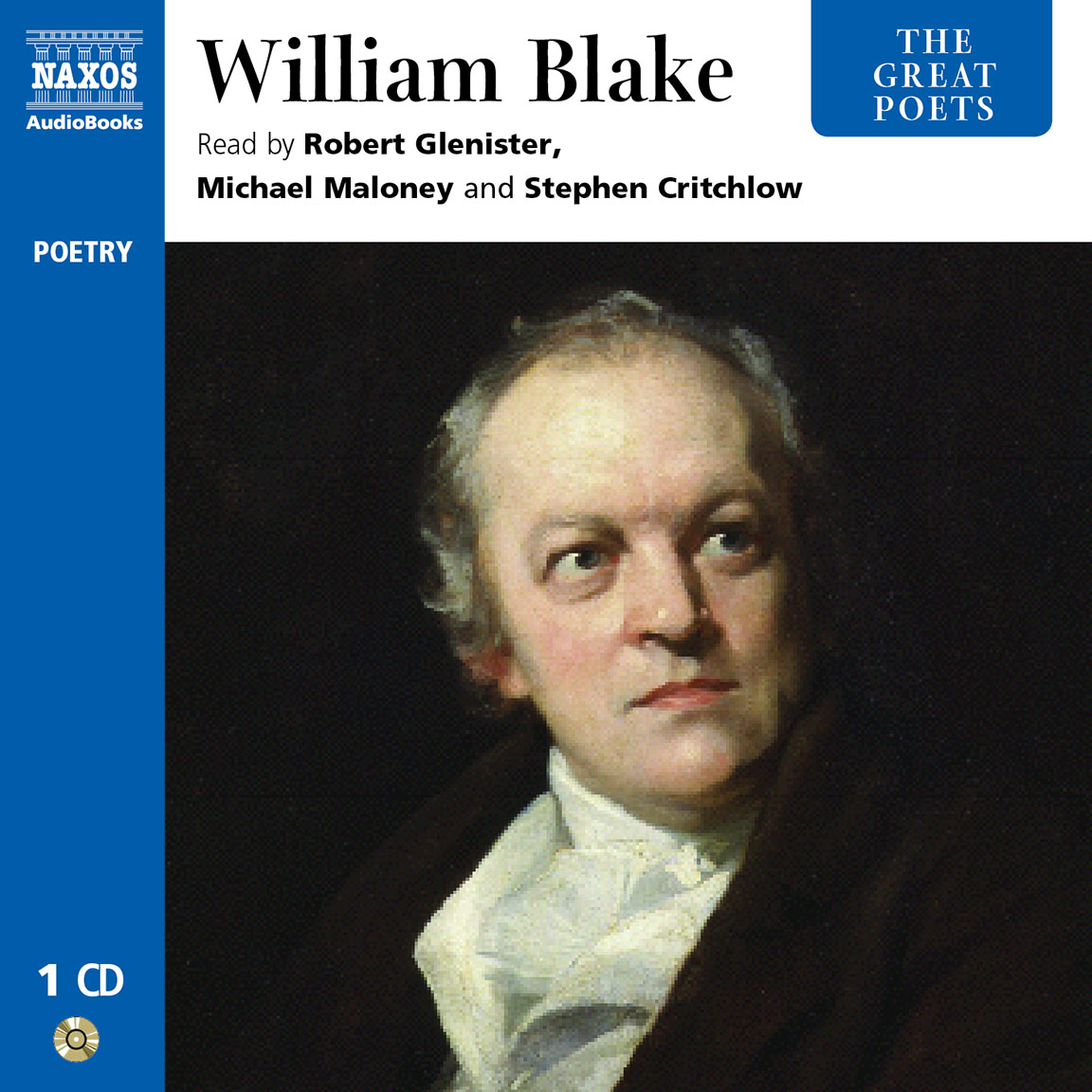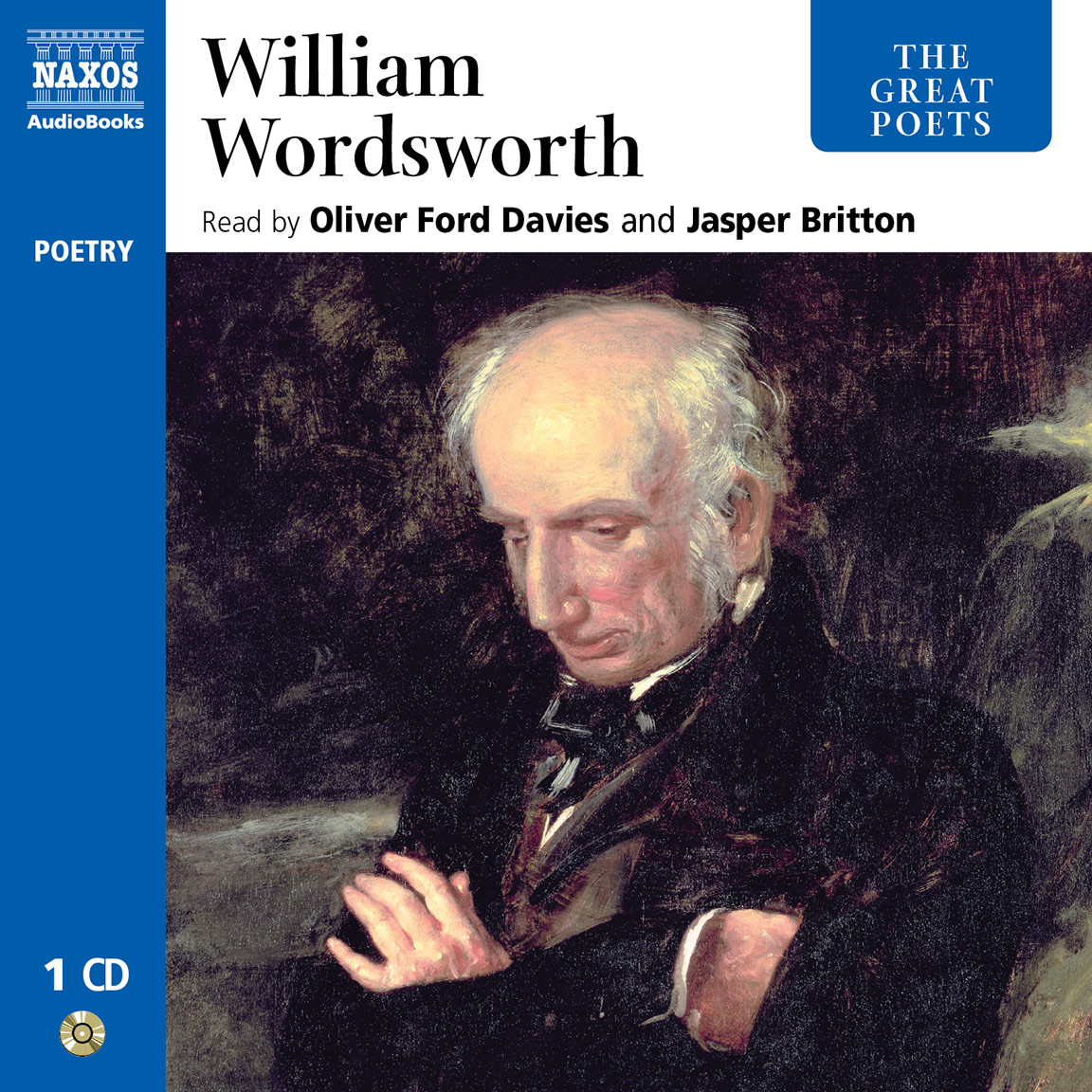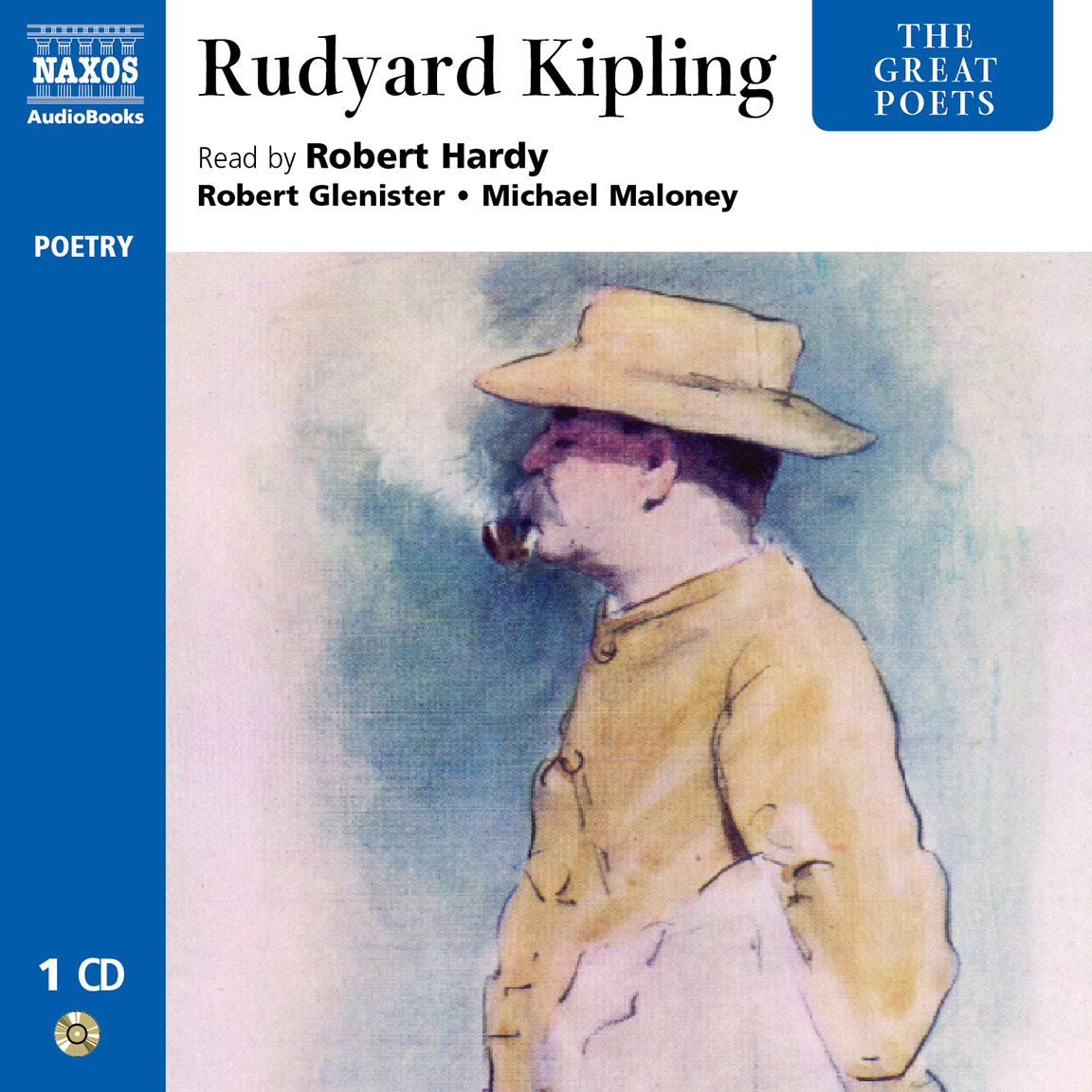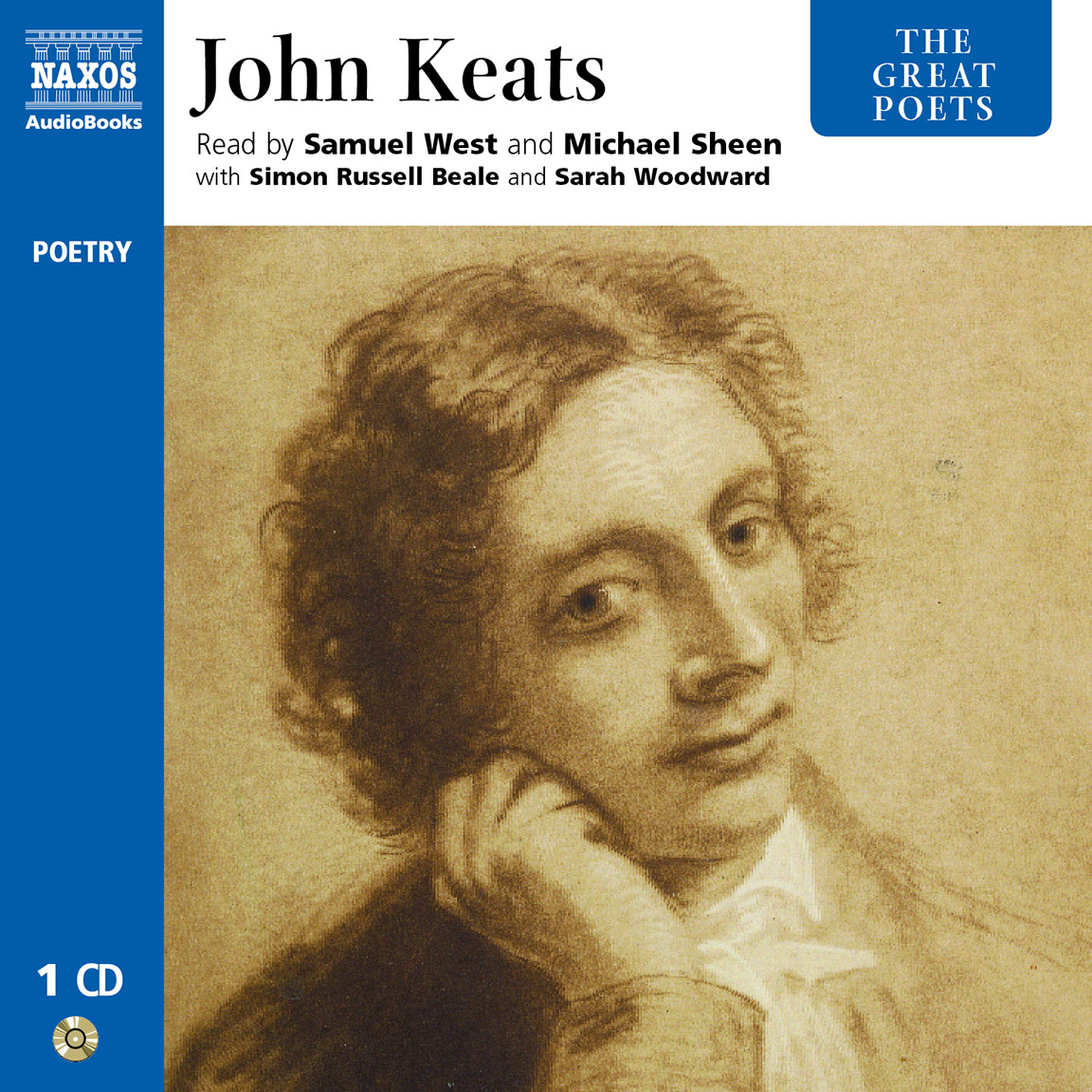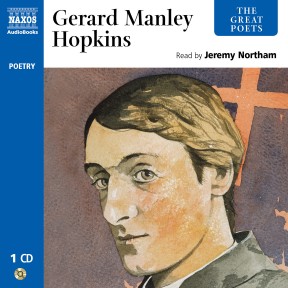
Audio Sample
Gerard Manley Hopkins
The Great Poets – Gerard Manley Hopkins
Read by Jeremy Northam
selections
A collection of the best-known poems by Gerard Manley Hopkins (1844–1889). One of the Victorian era’s greatest writers, Hopkins’ reputation has continued to grow since his death. Our Great Poets series, launched in 2007, has proven very popular, offering many of the best-loved poems by popular poets in an inexpensive 1 CD collection – and well read by leading actors. This anthology of works by one of poetry’s most daring innovators will undoubtedly become a best-seller. The collection includes The Windhover, The Caged Skylark, Carrion Comfort, Spring and Fall, and Inversnaid.
-
Running Time: 1 h 02 m
More product details
Digital ISBN: 978-962-954-763-9 Cat. no.: NA190012 Download size: 15 MB BISAC: POE005020 Released: August 2008 -
Listen to this title at Audible.com↗Buy on CD at Downpour.com↗Listen to this title at the Naxos Spoken Word Library↗
Due to copyright, this title is not currently available in your region.
You May Also Enjoy
Included in this title
- Heaven-Haven A nun takes the veil
- She schools the flighty pupils of her eyes
- Myself Unholy
- The Habit of Perfection
- from The Wreck of the Deutschland
- God’s Grandeur
- The Starlight Night
- As king fishers catch fire, dragonflies draw flame
- Spring
- The Lantern Out of Doors
- The Sea and the Skylark
- The Windhover − To Christ Our Lord
- Pied Beauty
- Hurrahing in Harvest
- The Caged Skylark
- Binsey Poplars felled 1879
- The Bugler’s First Communion
- Morning, Midday and Evening Sacrifice
- The Candle Indoors
- Felix Randal
- Spring and Fall: To a Young Child
- Inversnaid
- The Leaden Echo and the Golden Echo
- To what serves Mortal Beauty?
- (Carrion Comfort)
- No worst, there is none. Pitched past pitch of grief
- I wake and feel the fell of dark, not day
- Patience, hard thing! the hard thing but to pray
- My own heart
- To his Watch
- from Caradoc’s soliloquy from St Winefred’s Well
- Spelt from Sibyl’s leaves
- Tom’s Garland
- Harry Ploughman
- That Nature is a Heraclitean Fire and of the comfort of the Resurrection
- Justus Quidem Tu Es, Domine (Thou art indeed just, Lord …)
- The Shepherd’s Brow
- To R.B.
Reviews
The presence of Gerard Manley Hopkins on the A-level English syllabus for more than forty years means that anyone with a love of language has at least some lines of his poems by heart, so many of you will be able to murmur along as you listen to Gerard Manley Hopkins, the latest in the Great Poets series. Jeremy Northam delights the ear with thirty-eight of Hopkins’s finest poems, beginning with the little jewel of Heaven-Haven and including the incandescent Wreck of the Deutschland and the vaulting leaps of The Windhover.
Christina Hardyment, The Times
To read Hopkins’s poetry aloud, you have to be sensitive to all his chiming alliteration, assonance and idiosyncratic rhythm, and yet allow the poet’s own voice to be heard. Jeremy Northam does just that, giving the listener the essence of Hopkins: the ‘dearest freshness deep down things’.
Rachel Redford, The Observer
Booklet Notes
Gerard Manley Hopkins was a Jesuit priest, and a poet whose works were never collected and published in his lifetime. The combination of his faith, his response to the natural world and his ability to express both through an idiosyncratic use of metre and language created poetry that can be ecstatic or profoundly resonant. But it is charged throughout with a tension, a muscularity and complexity, that prevents it becoming a rhyming litany of theological conventions. This intensity mirrors his attitude to nature but also suggests a struggle between the man who subsumed himself into an ascetic and disciplined order, and yet who felt emotions passionately, and expressed them in some of the most compelling verse in English.
This forceful compression of his poetry is also suggestive of other concerns. The urgency has a sexual drive to it as well as an intellectual or emotionally sensitive one, and there is plenty in his work that is homoerotic, or can be read as homoerotic. It is not difficult to see his decision to join the Jesuits as a determined attempt to remove himself from the temptations of the flesh, to sublimate his sexual desire into devotion to God. On the other hand, there is no clear evidence of Hopkins’s sexuality, and a purely psychosexual reading of the works would diminish or limit rather than explain them. Equally, however, this further layer of ambiguity rather suits the work of a man who was deeply unconventional behind an ostensibly conservative upbringing.
He was born in 1844 in Stratford, on the Essex/London border, to a large, comfortable, middle-class family. His father Manley was a marine insurance adjuster and (rather exotically) consul general for Hawaii in London. Both parents were interested in the arts in some form – the father composed songs, wrote poetry and a novel, and drew; the mother (Catherine) was the more musical, and knew Italian and German. The family was also devoutly Anglican. Several of the eight children entered careers in the arts and languages; and two – Gerard and his eldest sister Millicent – entered the clergy.
At school he won several prizes, including a poetry one, and in 1863 won an exhibition to Balliol College in Oxford. There, he was awarded a double first in Classics and Greats, and got to know Robert Bridges, who was later to become Poet Laureate. But it was while at university that his doubts about Anglicanism grew. This change was hardly new in the Oxford of the time – it had been the centre of a reformist movement from the 1830s, concerned with what it saw as the secularisation of the established church, and going so far as to question its legitimacy. As a result, several extremely influential figures of the time turned to Catholicism, including John Henry (later Cardinal) Newman. Amongst those who taught Hopkins were other prominent igures in the dispute – Jowett and Pater, for example – who influenced not only his religious development but also his artistic one. Searching for a combination of intellectual rigour, discipline and a stringent set of dogmas to bring him closer to his God, Hopkins was received into the Catholic Church in 1866 by Newman himself. Two years later, he decided to become a priest in The Society of Jesus, although he allowed himself a trip to Switzerland beforehand – the country did not admit Jesuits at the time.
Hopkins was devout before this – he had been mocked at school for his daily habit of reading the Bible – but he was not limited. He loved art and architecture, read widely, played sport and was recognised as someone who valued fair play. He was engaging and witty, and even in his early training for the priesthood, his group was the one that was always laughing. He had carried on his writing, but something about entering the clergy made him change this. It is not clear why he felt it inimical to the priesthood (perhaps the demand for attention that publishing implies, perhaps the idea of expressing yourself rather than devoting yourself to the service of God, were seen as vanity), but on 11 May 1868, he burnt his early poems. Those that remain – such as the first four in this collection – were found either in diaries or correspondence, and for seven years he wrote nothing. During this time, he studied philosophy for three years in London, taught rhetoric in Lancashire, got to know the works of the philosopher Duns Scotus, made detailed notes in his journals on many subjects, but especially nature, and began his theological studies at St Bueno’s in Wales.
It was while at St Bueno’s that the opportunity arose to start writing again. A ship, the Deutschland, had run aground, and among the passengers that had died were five nuns. Hopkins mentioned to his rector that he was moved by the incident, and the rector suggested that someone should write a poem about it. As Hopkins said, ‘though my hand was out at first, [I] produced one’. The Wreck of the Deutschland was the longest poem he ever wrote and the first of his mature works. The fact that he had been given permission to write it seems to have quelled any fears he had about the legitimacy of composing poetry, and he wrote for the rest of his life. This, however, did nothing to encourage him to seek publication – the fact that the Jesuit magazine The Month rejected it as too difficult probably did not help.
The magazine editors were not alone. Among those who thought it unreadable were Hopkins’s friend Robert Bridges as well as colleagues in the college. Their concerns sprang from Hopkins’s innovative use of rhythm and unconventional approach to stanzas and lines, allowing the meaning to run over lines and even verses rather than be curtailed by them. He also added markings to his work to indicate where the stresses should occur; and these were not where standard metrical practice would have them. As he himself said, this was not new; but it was not a style in use – its roots were in early English and Welsh poetry. Hopkins had learned to love Welsh poetry while studying at St Bueno’s – so much so that he had also learned the language – and it is this ‘sprung rhythm’ (a term Hopkins used to distinguish it from the standard, or ‘running rhythm’) that gives his poetry such particular energy. The people who first saw the poem were unimpressed – he was obliged by the magazine to remove the markings that indicated where the stresses should be. He did; and they still didn’t publish it.
But throughout his life Hopkins was able to accept criticism, even if he did not bow to it, and he carried on writing in his own style, finding a fluency he could hardly have expected when he started on The Wreck of the Deutschland. But he was now a priest, and was being moved around the country, often at short notice to the likes of Chesterfield, London, Oxford, Liverpool and Glasgow. He did not particularly enjoy his time at these last two, principally because of the insight it gave him into the dehumanising effect of mass industrialisation. For Hopkins, to whom nature was a blissful realisation and expression of God, the world was for everyone to love, appreciate, and be made alive by; man’s dependence on servitude for profit prevented whole classes from even beginning to touch upon this understanding.
He was not a strong man, however, and suffered frequent bouts of illness. In 1884 he was sent to University College in Dublin as a Fellow and Professor. The teaching and administrative duties were extremely arduous, but he was diligent and conscientious about them as he always was. His rooms were cold and in need of repair, but since he had taken a vow of poverty, he could not afford to have the work done. He was, moreover, subject to depressive convictions of his own lack of worth, feeling that he never achieved anything, that he was always starting projects and never finishing them (such as his verse play, St Winefred’s Well). At the same time, he was away from England, which profoundly depressed him; and he was also distressed by being in a city where the issue of Home Rule and nationality were perpetual and contentious issues. It was during his first two years in Dublin that he wrote the six ‘Sonnets of Desolation’ (including the now-named Carrion Comfort, No worst…, I wake… and Patience…), poems that were ‘written in blood’ – that had come to him ‘unbidden and against my will’. These are dense poems of terror and despair, brought about through his circumstances and a sense that he was losing touch with his God. But by 1886 his faith appears to have to some extent recovered, and he had written other poems that seem almost joyous. His health, however, was to fail him again, and he died of typhoid in 1889. His last words were ‘I am happy, so happy.’
It is not just the unusual rhythms that mark his work out. He believed in what he called ‘inscape’ – the essence of each individual thing or being – and ‘instress’ – the power of that thing as it is communicated to the observer. He could not express these with the usual methods, so he invented his own. This was not poetic iconoclasm – the conventions were simply inadequate. So he incorporated into his poems extensive use of assonance, alliteration and internal rhymes (also common in Welsh and early English poetry); rare, invented or compound words; elliptical sentence constructions; compression of ideas and forcing language to create at times contradictory impressions; a pulsing, multi-adjectival piling-on of descriptions; and a yearning, sensual – at times almost physical – response to the natural world. He used startling oppositions of words and implications, and created new verbal constructions to carry his meaning, his sense of God in the world, fully and truly.
Hopkins was a major influence on poets such as Dylan Thomas, T. S. Eliot and Ezra Pound, and in a sense he is a bridge between the nineteenth and twentieth centuries. He created works that are personal, rhythmic, intense, precise and yet ambiguous, and it is easy to be seduced by the linguistic feast he offers, to merely take pleasure in the rhythms and rhymes, and be rhapsodised by the dazzling nature of his wordplay. In a sense, this is rather how he felt about the natural world – its beauty was almost overwhelming. But this glorious fecundity was just the image of something deeper, more complex and ultimately more rewarding; and that demanded more from the observer for its full wealth to be revealed.
Roy McMillan
